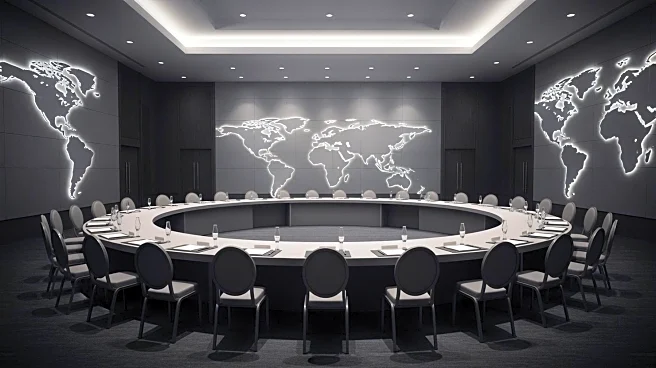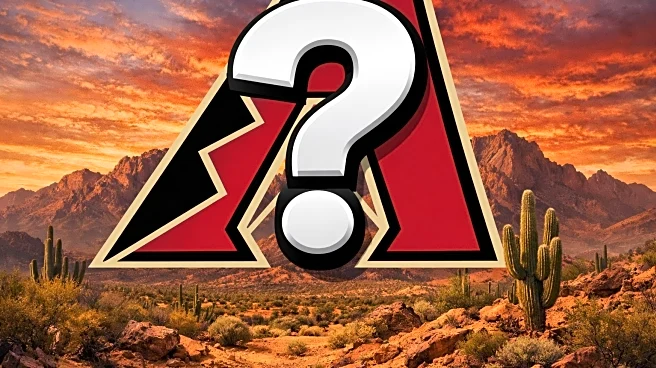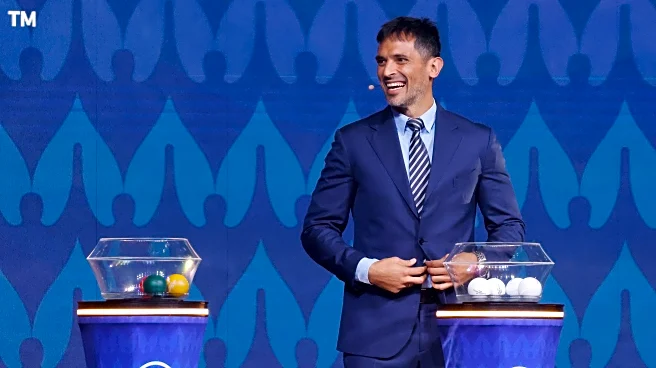What's Happening?
South Africa is hosting the first Group of 20 (G20) summit on African soil, focusing on issues such as climate change, foreign debt relief, and green energy transitions for developing countries. The summit,
held near Soweto, aims to address global inequality and support poorer nations. However, the event is marked by a significant diplomatic rift, as President Trump has ordered a U.S. boycott, citing South Africa's alleged anti-white policies. Despite the absence of the U.S., South African President Cyril Ramaphosa has expressed optimism about reaching a consensus on a summit declaration. The G20, comprising 19 nations, the European Union, and the African Union, represents a significant portion of the global economy and population, but operates on consensus rather than binding resolutions.
Why It's Important?
The U.S. boycott of the G20 summit highlights ongoing diplomatic tensions and differing priorities between the Trump administration and South Africa. The absence of the world's largest economy could impact the effectiveness of the summit's agenda, particularly in addressing climate change and inequality. South Africa's leadership in setting the agenda underscores its role in advocating for developing countries, but the lack of U.S. participation may limit the potential for meaningful reforms. The summit's outcomes could influence global economic policies and the direction of future G20 meetings, especially as the U.S. prepares to take over the rotating presidency.
What's Next?
As the summit concludes, South Africa plans to issue a declaration from all present members, despite U.S. pressure to tone down the final document. The U.S. will assume the G20 presidency, potentially shifting the bloc's focus away from climate change and inequality. President Trump has announced plans to host next year's summit at his golf club in Florida, signaling a possible change in priorities. The diplomatic rift may continue to affect U.S.-South Africa relations, and the global community will watch closely to see how the G20 navigates these challenges.










